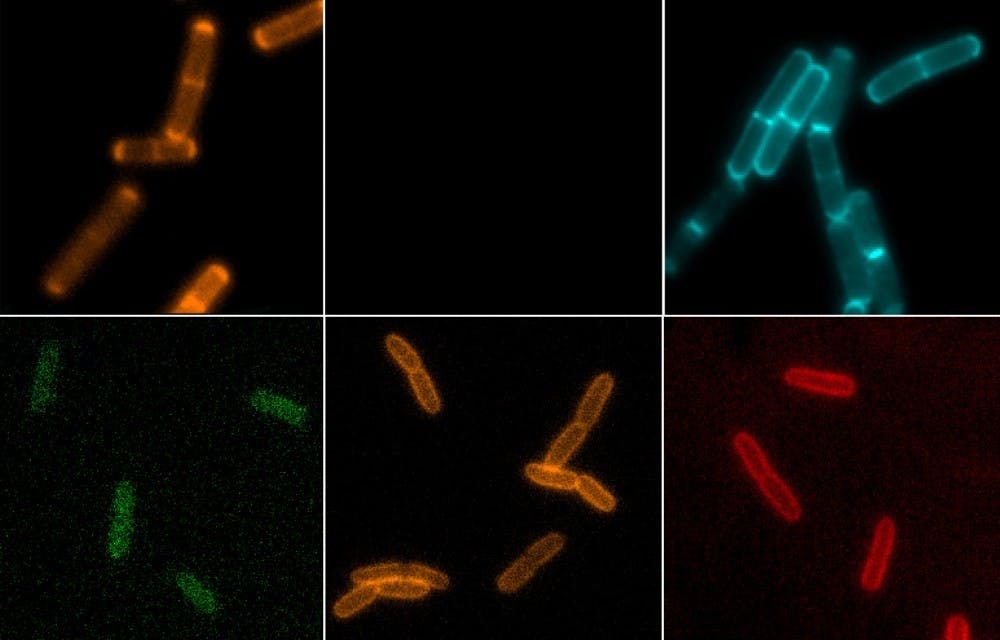IU researchers from the Department of Chemistry have made discoveries about bacteria that will advance the search for new antibacterial medicine. The researchers are using new chemical probes to observe cells in a more active way.
“The new technology allows us to do experiments in real time,” IU chemist and Associate Professor Michael VanNieuwenhze said.
VanNieuwenhze led the study and is working alongside Distinguished Professor of Biology Yves Brun’s lab.
“The work has been a fantastic collaboration between my lab and Michael’s,” Brun said. “My lab has a lot of experience in bacteria, and Michael’s has a lot of experience synthesizing bacteria, so we couldn’t have done it without each other.”
The chemical probes are small molecules that allows researchers to study a biological system, like cells. These new probes let researchers study live cells under a microscope and examine how bacteria build cell walls. Typically, antibiotics break open the cell walls and eventually kill the bacteria. But many bacteria are resistant to current antibiotics.
The new probes are fluorescent and light up when attached to the cell wall. They give researchers the ability to watch the cells in real time and make observations similar to video, as opposed to a photo, which is how previous research was conducted with older probe models.
Caitlyn Mulcahey, IU junior and researcher at the labs, said this technique is much more accurate than others.
“By labeling the walls fluorescently, we can see what is involved in building the wall, and then understand how to target them with antibiotics,” Mulcahey said.
Antibiotic-resistant infections are prominent in America. Centers for Disease Control and Prevention predicts that by 2050, the number of deaths by antibiotic resistance will outnumber the amount of deaths by cancer. IU researchers are looking for a new way to approach bacterial studies.
“This research is becoming increasingly relevant, and the problem is becoming more dangerous,” Mulcahey said.
The research allows for the potential to either modify currently available antibiotics or create new drugs altogether.
“There are bacteria strains that have been found that are resistant to pretty much every antibiotic we have,” Brun said.
Numerous companies and researchers outside of IU have become interested in their research given its importance, Brun said.
ThermoFisher Scientific, a biotechnology development company, purchased the rights to market the previous versions of the probes. VanNieuwenhze said companies and pharmaceuticals are now interested in the newer versions of the chemical probes.
“It’s great to be contributing to the work of so many different research groups around the world by designing these tools that they can use,” Brun said.
VanNieuwenhze said the developments the labs are making are fascinating.
“Learning new science by far is the most exciting part, and also the most difficult part,” VanNieuwenhze said.




